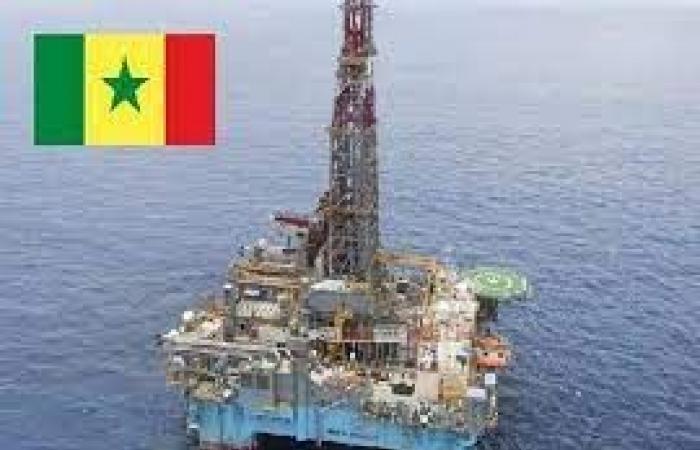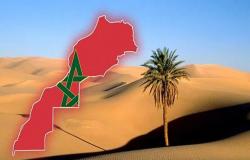The exploitation of gas resources in the West African sub-region, particularly between Senegal and Mauritania, is a major strategic issue. While Senegal implements rigorous and transparent management, Mauritania still seems to lag behind in several aspects, including governance, diversification and social impact. This article examines the approaches of the two countries, highlights Mauritanian weaknesses and questions the lack of coordination between the two neighbors in the management of these common resources.
1. Legal and institutional framework
Senegal
Senegal has adopted solid and innovative mechanisms, including:
• Law No. 2022-19 which establishes a clear framework for the distribution of gas revenues between the general budget (90%), the intergenerational fund (10%) and the stabilization fund.
• The Strategic Orientation Committee for Oil and Gas (COS-PETROGAZ), guarantor of the execution of policies.
• Proactive renegotiation of contracts to better defend national interests.
Mauritania
In Mauritania:
• The legal framework is based on reforms, notably a new Electricity Code, but remains focused on attracting foreign investors, to the detriment of an integrated vision for the population.
• The National Hydrocarbon Fund has existed since 2006, but lacks transparency and clear mechanisms to guarantee its sustainability.
Analysis: Senegal stands out with a more recent strategy, structured and geared towards sustainable development, while Mauritania seems to favor an approach favorable to investors, often to the detriment of populations.
2. Projects and economic benefits
Senegal
Senegal has launched ambitious projects such as:
• Grand Tortue Ahmeyim (GTA) in collaboration with Mauritania, with production planned from 2025.
• Sangomar, an already operational oil project.
• Yakaar-Teranga, intended to supply domestic consumption.
A notable project: Senegal also plans to use its gas resources to build an energy plant in order to develop access to electricity throughout the territory. This project shows a clear desire to invest in infrastructure that directly benefits the population and supports local industrialization.
Mauritania
In Mauritania:
• Major projects include GTA and Bir Allah, but the focus is on powering mining hubs and exporting gas to foreign markets.
• Unlike Senegal, Mauritania is not considering any national energy projects using its gas resources to improve access to electricity or support local development.
Analysis: While Senegal promotes inclusive development by reinvesting revenues in social and energy infrastructure, Mauritania focuses solely on exports, limiting the direct impact on its population.
3. Transparency and governance
Senegal
• Active member of the Extractive Industries Transparency Initiative (EITI).
• Systematic publication of oil contracts.
• Regular audits to strengthen governance.
Mauritania
• Lack of transparency on oil contracts.
• Weak revenue management via the National Fund, exposing the country to corruption risks.
Analysis: Senegal’s transparency is a model to follow, while Mauritania remains vulnerable to ineffective governance practices.
4. Environment and sustainable development
Senegal
• Implementation of 35 measures to reduce greenhouse gas emissions.
• Integration of reforestation mechanisms and promotion of renewable energies.
Mauritania
• Few explicit measures to limit environmental impacts.
• Lack of a clear plan to use gas revenues in an energy transition.
Analysis: Senegal adopts a proactive approach to combine economic development and environmental protection, while Mauritania remains limited in this area.
5. A lack of regional coordination
Despite their collaboration in the GTA project, Mauritania and Senegal have not harmonized their strategies. Senegal, thanks to its ambitious measures, appears to be the leader in the management of these resources, while Mauritania seems to passively wait for the financial benefits. This situation raises several questions:
• Why has Mauritania not adopted measures similar to those of Senegal to guarantee inclusive development?
• Could the lack of coordination between the two countries limit the impact of the GTA project on regional development?
6. Specific risks for Mauritania
In reality, Mauritania, with a population of less than five million, is potentially a rich country, even without gas exploitation. However, its chronic poor governance, endemic corruption and massive embezzlement on an industrial scale keep the majority of its population in poverty.
If gas exploitation is poorly managed and social inequalities worsen, the country could face serious consequences:
• Exacerbation of social tensions: The absence of benefits for the populations could generate protest movements, or even risks of implosion.
• Accentuation of inequalities: The concentration of income in the hands of a corrupt elite could widen the gaps between rich and poor.
• Risk of resource curse: Like other resource-rich countries (Nigeria, Angola, Venezuela), Mauritania could see its natural wealth become a source of unrest instead of an opportunity for development.
7. Conclusion et perspectives
Senegal illustrates how proactive, structured and transparent management of gas resources can transform a country. On the other hand, Mauritania’s inadequacies, particularly in terms of governance, infrastructure and social development, highlight the risks of an approach focused solely on financial benefits.
To ensure a sustainable and inclusive future, it is crucial that Mauritania:
• Strengthens the transparency and governance of its resources.
• Diversifies its investments to include projects with direct social impact.
• Coordinate further with Senegal to take full advantage of shared resources.
• Draws inspiration from Senegalese initiatives, notably by considering national energy projects to improve access to electricity and support local development.
As it stands, if Mauritania does not radically change its governance, gas exploitation could worsen inequalities and plunge the country into internal conflicts. A unique opportunity for prosperity could thus turn into a factor of instability and increased poverty.
This text now highlights Senegal’s energy project and the absence of a similar vision in Mauritania.
Abdallahi Ould Abdallah






